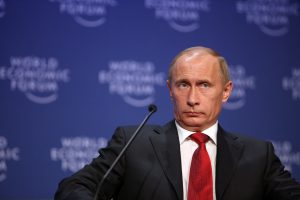It will come. It is bound to happen, but it is so distressing, worrying and astounding that Germany did not immediately say “yes” to France after it proposed to all its European partners a “strategic dialogue on the role of the French nuclear deterrent in our collective security”.
France had thus opened the door to a pooling of its nuclear capabilities. Through its President, France declared that its “vital interests had now a European dimension”. At a time when the American umbrella is becoming so uncertain, France had offered to provide its own umbrella by extending its nuclear protection to the whole Union. Even better, in a speech delivered on Friday at the Ecole de Guerre, Emmanuel Macron said that each Member State that accepted this strategic dialogue could then be “associated with exercises of the French deterrent forces”.
France had totally reshuffled the cards and…
Nothing, nothing but an abysmal silence in Berlin and in each of the Union’s capitals, even though the President of the Republic had taken care to disarm in advance the mistrust and misunderstandings that his initiative might arouse.
He had said that the Common Defence should be “a European pillar within NATO”, that the Atlantic Alliance was and had to remain indispensable and that the affirmation of a European Defence could not be the result of an anti-Americanism often attributed to France at a time when our American allies are asking us to increase our security efforts. The French President had also addressed the ethical questions that the possession of the nuclear weapon pose in Berlin. He had, in short, shown that he was fully aware of the problems that his proposal could raise for our German partners, but nobody has heard Germany expressing even three words of courteous interest.
Things will inevitably change. The chancellery will not be able to carry on for long as if this speech had never been delivered; but why is everything so slow when it comes to changes in the European status quo and why do French proposals, one after the other, meet with such a heavy and systematic silence?
The first reason has a name, and this name is Macron. Young, hyperactive, on all fronts at the same time, this president blows his European partners’ minds and leaves them breathless by putting them in the position of having to react to his initiatives rather than taking as little action as they are used to. Germany finds it hard to bear to no longer be alone at the helm, setting the agenda and securing majorities in favour of its theories. It bears it all the less because its chancellor is leaving after having reigned over the Union for so long and because the new German equilibrium has not yet been found.
London is now away. Berlin is trying to find itself. Rome and Madrid are in a creeping crisis. The pain of the British amputation is gnawing away at the Netherlands and, with Poland on top, the former communist Europe is so terrified by the American detachment that it fears to endorse it by even accepting to consider the consequences which must however be drawn from that estrangement.
Inhabited by their social anger, the French people do not see that France has become the flagship of a European fleet whose national ships no longer have commanders. So Emmanuel Macron turns the rest of the Union uptight just as he is doing France. His vitality is as unbearable in Berlin as it is for two thirds of the French people and we do not know what to answer him because he has always ten proposals in advance.
This president is moving too fast.
It is high time he realised this, held back and returned to the troops lost at the rear. In fact, he started to do so on Friday by forcing himself to make comments on NATO that he had usually forgotten to explain because they are too obvious to him, but Emmanuel Macron is not the only problem.
Much rather than being hung up on this long-distance runner, the Union is now stumbling over the extent of the changes that have to be made. The chaos sown by Donald Trump on the international scene and his outbursts against the Atlantic Alliance and the willingness of the Union to undermine the American economy have awakened the Europeans. The ideas of a European defence, joint investments in the industries of the future and political empowerment of the Union now enjoy a consensus, but almost everyone has a different understanding on it.
Do joint investments mean that we are coming to a common industrial policy of the Union? Can the political empowerment of the 27 mean or not that they dare to disagree with the United States on issues other than Iran, and not only in words? Can common defence lead the Union to accept this pooling of French deterrence and thus declare that Europe will not beg the United States at any price to continue to protect it, or not?
In Paris, the answer is clear, but it is not any clearer in Berlin than in any other European capital. Defence, investments and political empowerment: the Union is now accepting what it was rejecting not long ago, but when it comes to making choices, as soon as we move from principles to concrete action, we are dazed, so profoundly and understandably dazed that the fear paralyses the 26 small and large States alike. Because Donald Trump could be re-elected and because necessity is the mother of invention, this will not last forever, but it must stop, as soon as possible.


